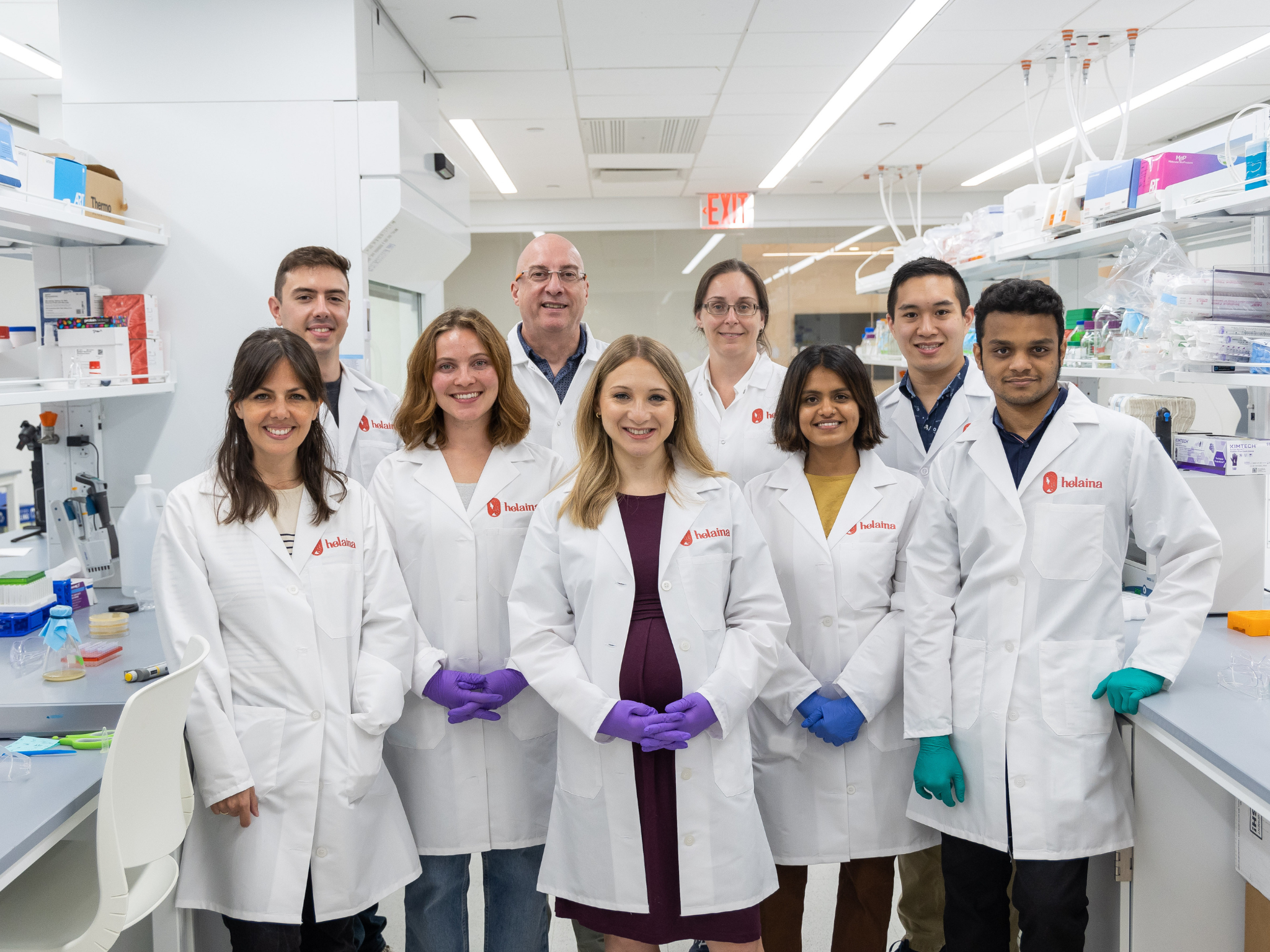Helaina Raises $45M to Launch Effera Human Lactoferrin with Kroma Wellness, Mitsubishi & More
6 Mins Read
US startup Helaina has closed a $45M Series B round to commercialise Effera Human Lactoferrin, its breast milk equivalent protein, in the US later this year.
Helaina, the New York-based firm making breast milk alternatives with precision fermentation, has secured $45M in a Series B funding round, ahead of a US market launch this year.
One of the largest sums raised by an alternative protein company this year, the investment was led by Avidity Partners, with additional participation from Spark Capital, Ingeborg Investments, Tom Williams of Heron Rock, Siam Capital, and Relish Works, among others.
It takes Helaina’s total funding to $83M, making it one of the most well-capitalised precision fermentation startups globally. The company will use the money to scale up and launch its Effera Human Lactoferrin ingredient – a breast milk equivalent protein – as part of consumer products by Kroma Wellness, The Feed, Levelle Nutrition, Healthgevity, and Mitsubishi International Food Ingredients.
The precision-fermented lactoferrin will come to the market “in the next quarter”, Helaina founder and CEO Laura Katz tells Green Queen. “We’re starting with a US launch and then we will expand globally,” she says when asked about the company’s regulatory plans. “We’re particularly interested in the rest of North America and Europe.”
She adds: “We sell our protein in powdered form. The versatility and shelf life of the ingredient allows manufacturers to use it in a variety of production processes while maintaining efficacy.”
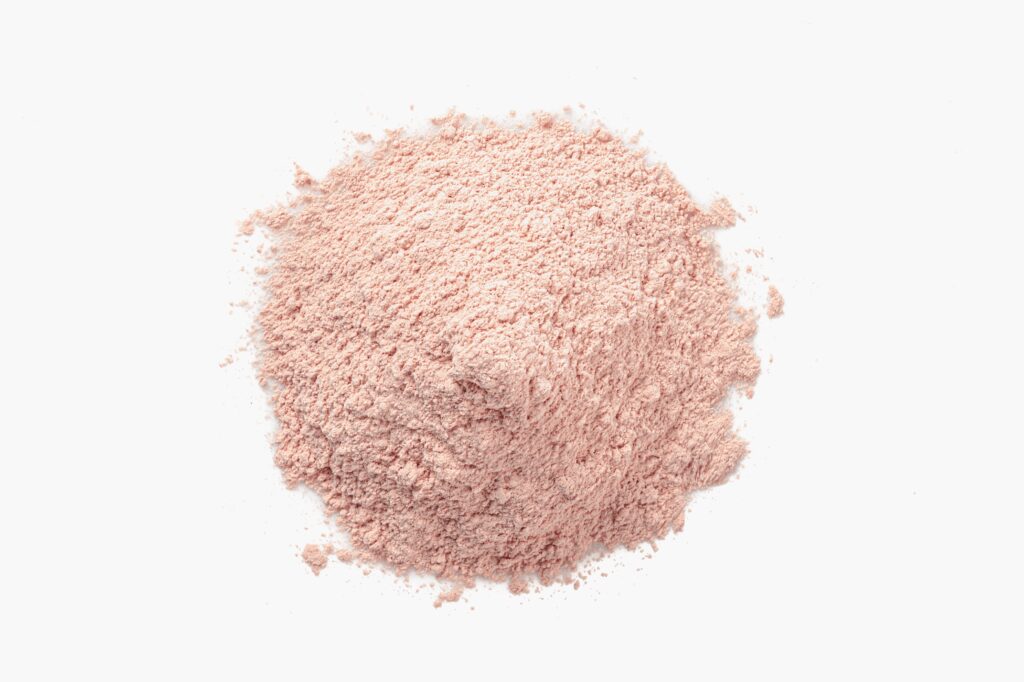
How Helaina makes its Effera Human Lactoferrin protein
Katz, a food scientist, established Helaina in 2019, spotting an opportunity to use precision fermentation to advance human health through “next-generation” nutrients. At the start of this year, it announced the development of Effera, a fermentation-derived equivalent of human lactoferrin.
The company describes the ingredient as the first bioactive protein to be used in functional foods, beverages, and supplements. It is said to boost iron homeostasis and metabolism, and promote a balanced immune response and beneficial microbiome.
To produce the protein, Helaina uses Komagataella phaffii (formerly called Pichia pastoris), the same yeast strain leveraged by fellow precision fermentation players The Every Company and Remilk. It’s also the key element of the heme ingredient in Impossible Foods’s beef analogues.
“If you think about yeast microbes as tiny factories, normal factory operations produce set byproducts,” explains Katz. “We introduce a new operating system (human DNA), which teaches the yeast to produce something else. We also optimise the environment by providing the yeast the exact nutrients it needs to ferment.”
She adds: “Once Effera is made, it is separated out from the yeast leaving behind pure human lactoferrin. The finished product has not been genetically modified, it is a non-dairy, non-allergenic source of the protein.”
Katz suggests the protein ingredient can suit multiple categories, from women’s health and active nutrition to healthy ageing and – in the long term – infant formula. “We will bring our ingredient to infant formula in partnership with formula manufacturers,” she says.
The yeast-derived lactoferrin is a tasteless, odourless ingredient that can be effective at “very low inclusion levels”, allowing it to be incorporated into formats like “capsules, tablets, powders, gels, energy drinks, nutritional bars or gummies”.
Effera also meets the demands of the modern consumer, as Katz puts it: animal-free (there are no animal products or byproducts used to produce it), gluten-free, soy-free, certified Kosher and Halal.
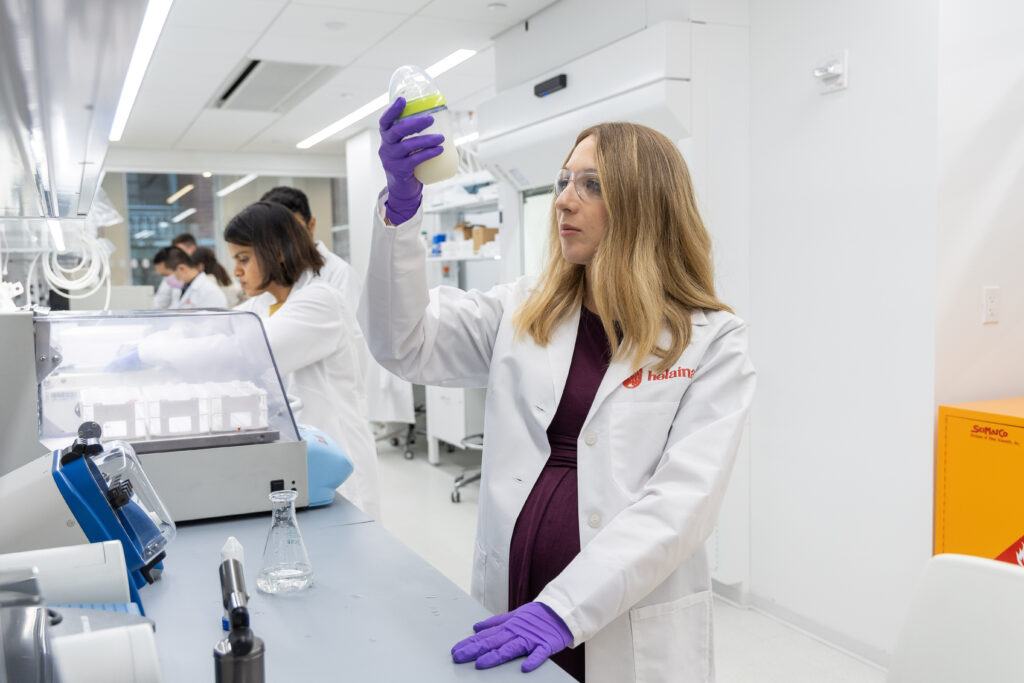
Lactoferrin a focal point among precision fermentation startups
Helaina has been producing at a commercial scale since May 2023. “Our current manufacturing capabilities allow us to produce as quickly as needed for our customers. Effera is manufactured with world-renowned partner facilities,” she says.
“One of the benefits of using an ingredient made via precision fermentation is that it unlocks supply constraints on ingredients that were previously impossible or difficult to procure,” she notes. “That is the case with Effera Human Lactoferrin. The only previous source for human lactoferrin was human breast milk on the black market.”
Indeed, lactoferrin – found in human milk and bovine colostrum produced just after birth – is a highly sought-after whey protein. It’s an iron-rich ingredient that regulates gut health, an increasingly popular market, and possesses antiviral, antibacterial, anti-carcinogenic, immunity-boosting, gut-strengthening and iron-regulation properties.
But it isn’t easily available. It takes at least 10,000 litres of milk to produce just 1kg of purified lactoferrin. This drives up the cost, with the ingredient retailing for $750-$1,500 per kg. Katz declined to comment on the cost of Helaina’s Effera ingredient – but its high price is why much of the lactoferrin supply (60%) is reserved for the infant nutrition sector.
It’s also why a host of precision fermentation startups are turning to lactoferrin. TurtleTree, which is the only company to receive regulatory approval for such an ingredient, is close to commercialising it via beverage and functional product partnerships.
But others who have been known to be working on lactoferrin include Australia’s All G Foods and Noumi, US startup De Novo Foodlabs, Californian player Triplebar Bio (in collaboration with FrieslandCampina), and New Zealand’s Daisy Lab. The latter’s core business lies in beta-lactoglobulin (another whey protein), but it recently diversified into lactoferrin as well.
“Due to some reported headwinds in the alternative proteins’ investment market, we felt that we needed to bolster our commercial strategy,” co-founder and CEO Irina Miller told Green Queen in May. “Production of lactoferrin can substantially accelerate the investment returns for our current and future investors.”
There are others working on breast milk alternatives too. Israel’s Wilk is using cell cultivation to produce lactoferrin, while French startip Nūmi is aiming to reproducing breast milk itself, with as many constituents as possible (including proteins). And in the US, Yali Bio and The Live Green Co are creating precision-fermented breast milk fats.
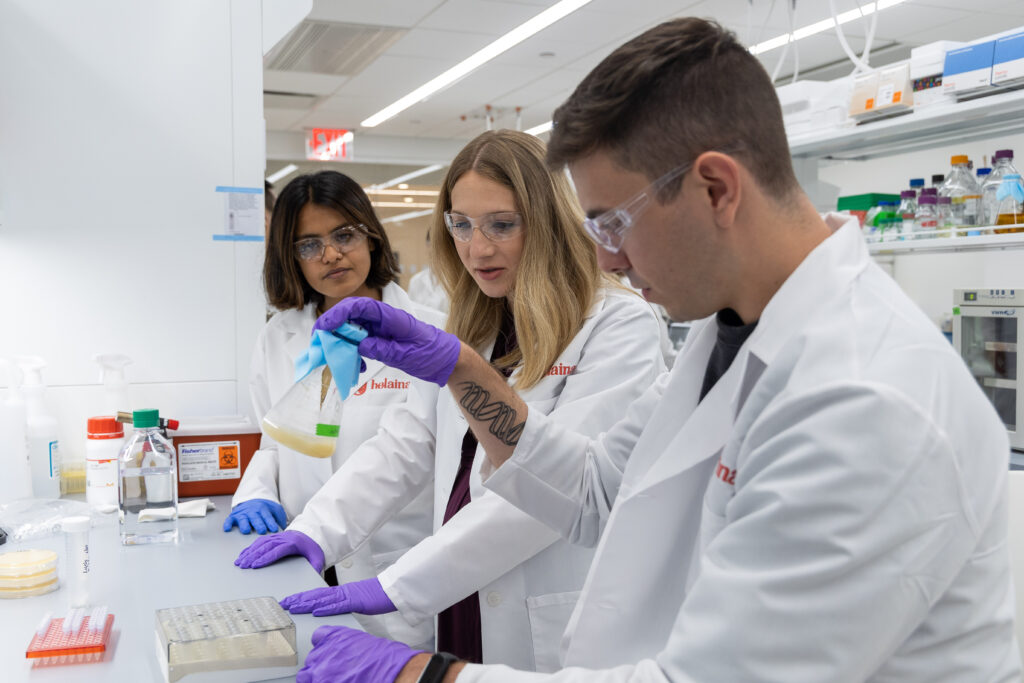
Helaina rides on the back of investor interest in fermentation
In January, Helaina released a pre-print study detailing the composition of its lactoferrin ingredient, and it will soon release peer-reviewed results of clinical and pre-clinical research that have found Effera to be more effective than bovine lactoferrin.
But it’s not just Effera that Helaina is working on. The company has outlined its intention to build a bioactive portion pipeline to “advance the human healthspan”. “We have a robust technology platform to bring other bioactive proteins to market – there is a limited global supply of bioactive proteins and our pipeline is poised to change that,” says Katz.
The Series B round means it has raised more money than any other lactoferrin-focused alternative protein startup. It’s also the sixth-largest investment in this sector in 2024 – behind Meati‘s $100M Series C, Perfect Day‘s $90M pre-Series E, Formo’s $61M Series B, Infinite Roots‘s $58M Series B, and Prolific Machines‘s $55M Series B1.
It comes off the back of a 44% drop-off in alternative protein financing in 2023, followed by a surge in funding interest in fermentation. Before the close of Q3 2024, fermentation startups have already surpassed their funding totals from the entirety of 2023, surpassing $550M in nine months (versus last year’s $443M).
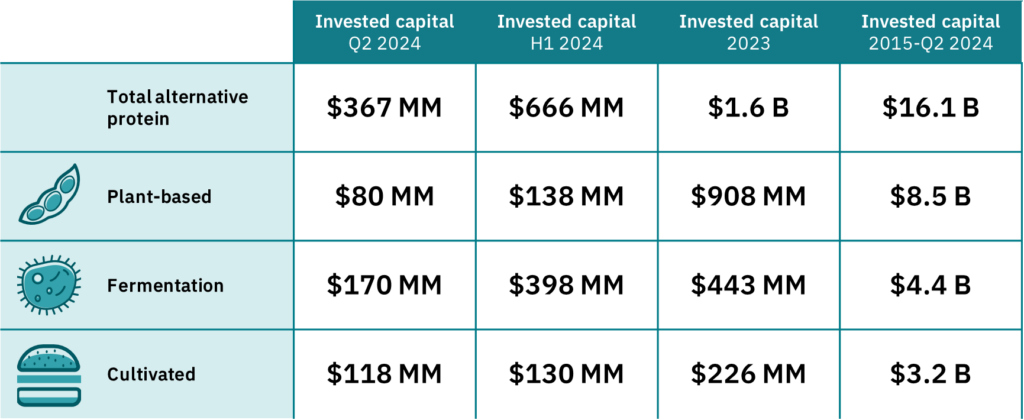
“Technology needs to be right-sized to the problem you’re trying to solve. If you’re making commodities that are inexpensive, it’s hard to justify biotechnology broadly, especially precision fermentation technology,” explains Katz.
“But when you’re making unique, high-value, specialty ingredients like human lactoferrin, you have the ability to implement these technologies in a way where you can build a venture-backed company,” she says.
“Not only do fermentation startups like ours have attractive unit economics over time. The demand and scale is well established for nutrition innovation to support pressing health and wellness priorities; at Helaina we’re addressing broad needs across different life stages,” she adds. “Further, our particular innovation, focusing on human-equivalency, is bringing ingredients to market that had never been accessible before.”

